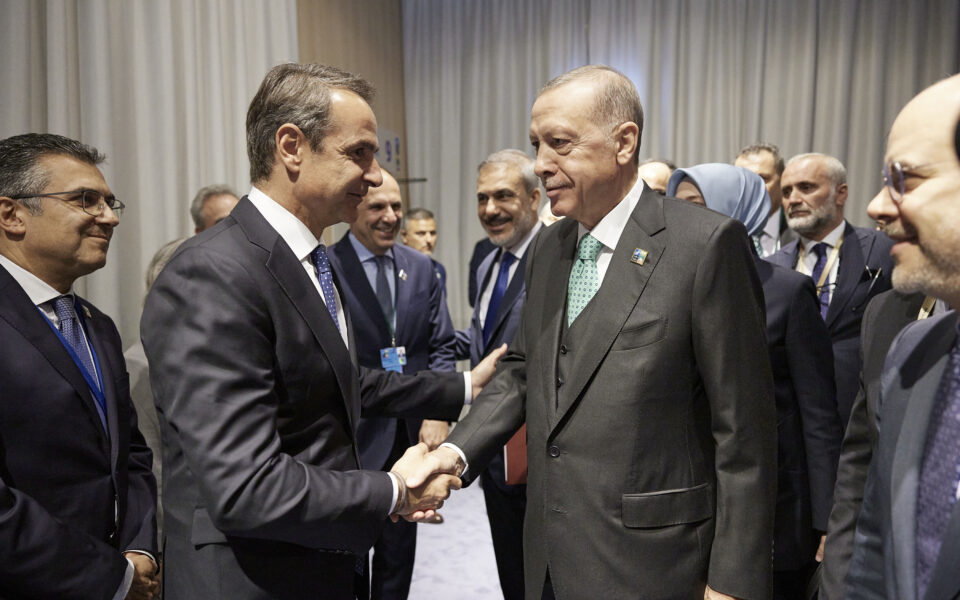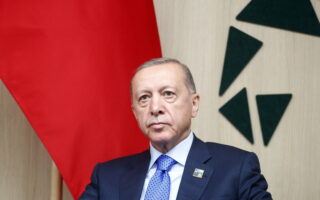Who’s afraid of dialogue?

The meeting between Prime Minister Kyriakos Mitsotakis and Turkish President Recep Tayyip Erdogan in Vilnius last week was hailed by some as a new page in the resolution of Greek-Turkish disputes through The Hague, while others were quick to describe it as the first step of a national retreat.
It is too early to reach any safe conclusions about the future of Greek-Turkish relations based on the Vilnius meeting. The only thing certain is that, for a few months, as long as this new rapprochement lasts, things will be calm in the Aegean.
It is clear that Erdogan’s charm offensive toward Athens and his overtures to the West are happening because he is desperately looking for money to support his country’s economy, which is on the brink of requesting assistance from the International Monetary Fund. It is also the only way to show that he is not itching for a fight with Greece, so that he can get the green light from the US Congress to modernize Turkey’s air force.
It is overly optimistic to think that any leaders’ talks with Washington’s blessings will magically resolve half a century’s worth of differences. Moreover, the Turkish side has not changed its position on any of the crucial issues. Not on the “Blue Homeland” doctrine, not on the 12 miles in the Aegean, and not on the so-called casus belli. In fact, Ankara continues to raise the issue of demilitarization of Greek islands and the existence of gray zones in the Aegean.
At the same time, however, no one can assume in advance that these talks will end in a stalemate if there is international pressure to find a mutually acceptable solution. It is indicative that Israel and Lebanon, two countries which were at war for years, without bilateral diplomatic missions, agreed with US guidance last October to delineate their maritime borders, thus allowing the joint exploitation of natural gas fields in the waters between the two countries.
Finally, and regardless of the result, this Greek-Turkish rapprochement, albeit temporary, is an important opportunity for a public debate in Greece on some “taboo” issues. For example, if – by some miracle – Erdogan changes policy on Greek-Turkish relations and accepts the jurisdiction of the International Court of Justice and agrees to refer the matter of the exclusive economic zones to The Hague, what will Athens do? Are we ready to accept binding decisions from an international court even if they violate some of our sovereign rights? Who knows?





